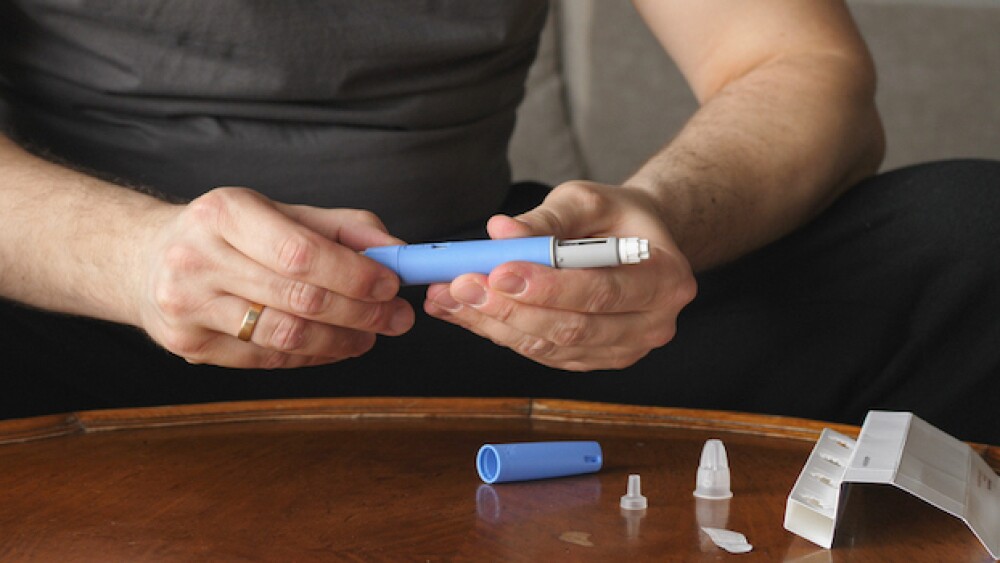Seeking a slice of the lucrative obesity market, Indian pharma companies are developing their own versions of Novo Nordisk’s blockbuster weight-loss drug Wegovy, Reuters reports.
Pictured: Man prepares his semaglutide injection pen/iStock, imyskin
Indian pharma companies have started developing their own versions of Novo Nordisk’s top-selling weight-loss medicine Wegovy (semaglutide), hoping for a piece of the multibillion-dollar obesity market, according to Reuters.
India’s Sun Pharma, Cipla, Dr Reddys and Lupin have all indicated that they have started working on their own versions of Wegovy. Systematix analyst Vishal Manchanda told Reuters that Sun Pharma is developing its own novel and patented treatment for obesity and type 2 diabetes, which will have to go through clinical trials.
“Dr Reddy’s and Cipla are making a copy of the innovator drug, more like a generic version,” Manchanda said.
Novo’s Wegovy and Eli Lilly’s Zepbound (tirzepatide) are currently dominating the weight-loss market, which analysts say could reach up to $150 billion to $200 billion in value in the coming years. In 2023, Novo’s GLP-1 sales—which include Wegovy for obesity and Ozempic (semaglutide) for diabetes—came in at more than $6 billion.
While Lilly’s Zepbound was only approved in November 2023, it still managed to rake in $175 million during the fourth quarter of 2023. Its type 2 diabetes counterpart Mounjaro (tirzepatide), which has also been used off-label for weight loss, brought in $2.2 billion in the most recent quarter.
Like the Indian pharmas, other companies are trying to join the highly lucrative obesity market. These include Regeneron, which is positioning its investigational trevogrumab and garetosmab as adjuncts for the top-selling GLP-1 receptor agonists. Both of Regeneron’s antibodies work by preserving muscle, seeking to improve the quality of weight loss and preventing muscle atrophy.
Regeneron is planning to trial trevogrumab and garetosmab in combination with tirzepatide or semaglutide.
Amgen has also started work on its own weight-loss candidate MariTide, which simultaneously activates the GLP-1 receptor while blocking the GIP hormone receptors. The pharma posted Phase I data for its candidate earlier this month, showing that it could elicit longer-lasting effects than currently available treatments.
Competitors could be a welcome addition to the weight-loss market. Since the respective launches of Wegovy and Zepbound, Novo and Lilly have struggled to meet the market’s insatiable demand for their obesity medications, leading to widespread shortages of these products.
The growing gap between supply and demand has allowed counterfeit and compounded products to thrive, which the World Health Organization (WHO) said last month could have “disproportionate consequences” on patients who actually need these treatments.
“Falsified medical products have been known to lack efficacy and/or cause toxic reactions,” the WHO said. “They are neither approved nor controlled by competent authorities and may have been produced in unhygienic conditions by unqualified personnel.”
Tristan Manalac is an independent science writer based in Metro Manila, Philippines. Reach out to him on LinkedIn or email him at tristan@tristanmanalac.com or tristan.manalac@biospace.com.






